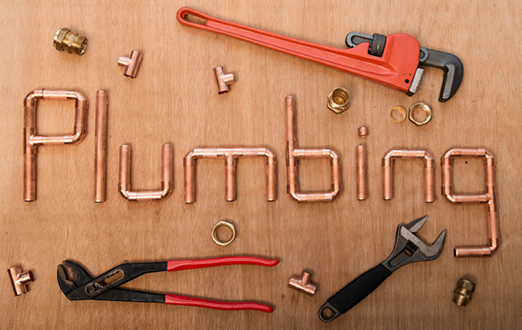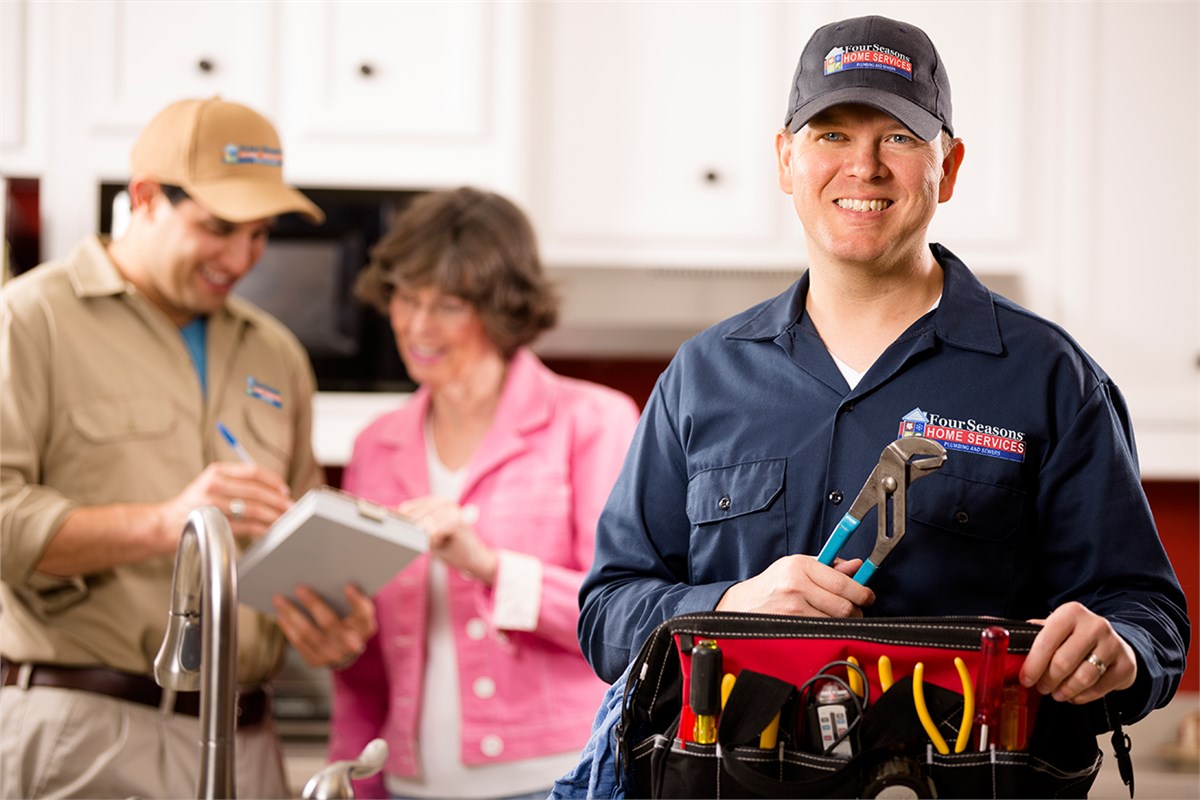As a new homeowner, you'll want to remain on top of your plumbing and heating systems to prevent costly and inconvenient troubles down the line. Routine inspections, upkeep, and upgrades can go a long way in keeping your home comfy and effective. While it might appear like an inconvenience, taking aggressive measures now can conserve you time, cash, and a great deal of migraines in the future. By understanding the typical problems to watch for and working with certified experts when required, you'll be well on your means to a well-functioning home that keeps you relaxing throughout the year.
Consistently inspecting your plumbing and heating unit can aid you determine potential problems early and avoid costly repair services down the line.
Beginning by performing plumbing inspections to check for any kind of leakages, clogs, or various other issues. Try to find indications of wear and tear, such as dripping faucets, low tide pressure, or slow-moving drain. If you discover any kind of problems, it's finest to resolve them today before they get worse.
Next off, timetable regular home heating assessments to confirm your system is running effectively. This might entail checking the thermostat, examining the heater or central heating boiler, and cleansing or replacing air filters. Pay attention to any kind of unusual sounds or changes in the system's performance, as these can indicate a problem.
Discovering and dealing with common pipes issues early can conserve you from pricey water damages and disturbances. Obstructed drains pipes, leaking faucets, and low tide stress are some of one of the most constant issues home owners face, usually originating from accumulation, worn washers, or damaged fixtures.
Watch out for water drainage concerns, like slow-draining sinks or tubs. These can indicate a clog in the pipelines, which can cause back-ups and flooding if left untreated. Utilize a bettor or drainpipe snake to remove the obstruction, and take into consideration installing hair catches or filters to stop future clogs.
Low tide pressure can also suggest a problem. Check for kinks or obstructions in the supply lines, and verify your water heater and components are functioning appropriately. Replacing old, corroded pipes might be essential if the concern lingers.
Frequently examining your plumbing and resolving troubles quickly will help you prevent significant frustrations and expensive repairs down the line.
Appropriately keeping your heating tools is vital to assure reliable operation and expanded life expectancy. Set up yearly tune-ups with a qualified technician to evaluate for any kind of concerns and carry out required upkeep, like cleaning or changing air filters.
Maintaining your heating system well-maintained can improve power performance, reduce utility prices, and avoid pricey failures throughout the cold weather.
Normal tune-ups ensure your heating system is running at peak efficiency. The specialist will certainly cleanse components, look for deterioration, and make any necessary adjustments.
This helps your heater or boiler operate more efficiently, which equates to reduce energy costs. They'll additionally determine prospective issues before they become major, pricey fixings.
Do not fail to remember to alter your air filters every 1-3 months to keep air movement unblocked and boost indoor air quality.
If your home has older pipes or heating systems, it's time to ponder upgrading them. gas fitters
Out-of-date equipment can be inefficient, pricey, and vulnerable to breakdowns.
Changing these systems with newer, much more energy-efficient models can assist prevent future problems and enhance your home's total comfort and performance.
Identifying outdated plumbing and heating tools is essential for stopping expensive troubles down the line. You can start by very closely inspecting your home's systems and trying to find signs of age or wear. Old pipelines, ineffective furnaces, and outdated hot water heater are all possible resources of problem.
When it concerns pipes, seek pipes made from obsolete materials like galvanized steel or lead. These can corrode with time, bring about leakages and water damages. Focus on the age of your hot water heater, too - a lot of have a life-span of 8-12 years. If your own is nearing completion of its life, it's time to assess a substitute.
For home heating, examine the age and performance of your heating system or central heating boiler. Older designs might be energy-hogs, costing you much more in energy costs. Newer, high-efficiency devices can conserve you cash over time.
Don't wait until your system damages down - being proactive can assist you avoid an expensive emergency situation repair service.
When you've identified obsolete pipes and home heating devices, it's time to change inefficient systems. Updating to more recent, a lot more energy-efficient models can conserve you money on utility expenses and prevent expensive breakdowns down the road.
When replacing your plumbing, think about using lasting materials like copper or PEX piping. These options are long lasting, corrosion-resistant, and better for the setting than standard plastic pipes.
For your heating system, look into high-efficiency heaters, central heating boilers, or heat pumps. These energy-efficient upgrades can considerably reduce your power intake and carbon footprint. Several versions additionally feature clever technology that allows you to program and monitor your heating from another location, giving you even more control over your home's power use.
Don't fail to remember to check out any available discounts or tax credits that might balance out the first price of these upgrades. Investing in modern-day, effective pipes and heating systems now will pay rewards over time through decreased maintenance, energy savings, and a more comfortable, sustainable home.
To keep your pipes from cold and leakages away, insulate any vulnerable pipelines in your house.
Preserve the appropriate temperature in your home to avoid water in pipes from cold.
Consistently check your pipes for any indications of leaks, and address them quickly to avoid further damages.
Securing prone pipelines from freezing and leaks begins with tactical insulation. Appropriately protecting exposed pipes, particularly those in unheated areas like attic rooms, crawl rooms, and exterior wall surfaces, can prevent expensive repair services down the line.
When it involves pipeline insulation methods, there are a couple of crucial factors to consider. Covering pipelines with foam or fiberglass sleeves is an efficient method to control temperature and stop heat loss.
Pairing this with warmth tape or heat cables can supply an additional layer of security in colder climates. Furthermore, utilizing insulation with a high R-value, which measures thermal resistance, will certainly much better maintain the preferred temperature level within the pipes.
Preserving the proper temperature in your home is essential to stop icy pipelines and prospective leaks. Validate your heating unit is working effectively, and think about establishing your thermostat to a minimum of 55 F, also when you're away, to keep the interior cozy adequate to inhibit pipeline freezing.
Constant temperature guideline is important, so prevent allowing the temperature level decline as well reduced, even in unused areas. Confirm your thermostat is effectively calibrated and configured to maintain a regular, comfortable temperature level throughout your home.
Prevent cranking the heat up too high, as this can additionally lead to issues like burst pipes from rapid development. Instead, go for a consistent, modest temperature level that maintains your home cozy without ill-using your furnace.
Consistently inspect your thermostat setups and make modifications as needed to preserve an appropriate temperature level for preventing pipes problems. Taking these actions will aid protect your home against the costly damage that can arise from frozen or dripping pipelines.
Frequently evaluating your home for leakages is important to preventing frozen pipes and the water damages they can trigger. Carefully examine all pipes components, pipelines, and connections for any kind of indicators of drips, fractures, or dampness accumulation, and address issues without delay. Pay special interest to areas susceptible to freezing, like outside walls, crawl rooms, and attic rooms, making certain appropriate insulation and securing around pipelines.
Purchase a leak discovery system to monitor water stress and sharp you to any kind of abrupt modifications that can signify a leak. Be positive in attending to also small leakages, as they can promptly intensify and result in extensive, pricey fixings. When inspecting, seek dead giveaways like tarnished wall surfaces, moldy odors, or the noise of trickling water.
If you do find a leakage, turned off the water supply immediately and call a specialist plumber. Neglecting leaks can result in severe water damage, mold and mildew growth, and the potential for frozen pipelines during the winter months.
Frequently keeping your plumbing system is a tiny investment that can stop major migraines down the line.
When it comes to resolving your pipes and HVAC demands, you'll intend to work with professional experts who can manage the work effectively and successfully. Seek plumbing technicians and a/c technicians who have actually the essential certifications and experience to assure your systems are correctly set up, repaired, or preserved.
Plumbers with the right qualifications, such as those from the Plumbing-Heating-Cooling Specialists Association (PHCC) or the National Assessment Testing Accreditation (NITC), have actually shown their competence and knowledge in the field. In a similar way, HVAC technicians with extensive experience in maintenance and fixing different home heating, ventilation, and air conditioning systems can give the trusted and reliable service you require.
Do not be reluctant to ask for referrals and examine their qualifications before working with any kind of professional. Respectable experts will be happy to supply evidence of their certifications and showcase their record of effective projects.
With your pipes and a/c systems in the hands of qualified experts, you'll wish to prepare for the continuous maintenance needed to keep them running smoothly. Budgeting for periodic examinations, tune-ups, and potential repair services is important to stay clear of unforeseen and expensive breakdowns down the line.
Begin by reserving a portion of your regular monthly budget for routine pipes and heating costs. This might consist of points like filter substitutes, small changes, and preventative upkeep. Purpose to assign 1-2% of your home's worth every year for these normal prices.
It's additionally a good idea to build an emergency fund especially for your home's mechanical systems. Unforeseen issues like a burst pipe or furnace failure can be extremely disruptive and expensive. Attempt to conserve sufficient to cover a minimum of one significant repair service, around $500-$1,000. This way, you'll be prepared to manage any kind of plumbing or heating emergency situations without draining your total financial savings.

To identify surprise plumbing or home heating problems in your house, start by carrying out a comprehensive leakage discovery examination.
Meticulously inspect your pipelines for any kind of indicators of leaks, fractures, or damage.
You can also employ a professional to perform a pipeline inspection utilizing specialized tools like video cameras or thermal imaging.
This will help identify any type of underlying problems before they rise and trigger significant damage to your home.
Don't wait until it's far too late - stay positive and attend to any problems without delay.
If your hot water heater is breaking down, you may discover some dead giveaways.
Leaks around the storage tank or connections can suggest a trouble.
And if you experience unexpected temperature changes - from piping hot to ice cool water - that's a red flag your water heater isn't functioning appropriately.
Do not ignore these indicators, as they might symbolize a much more serious concern that requires punctual focus from a specialist.
To prolong the life-span of your a/c system, regular maintenance is essential.
Set up yearly tune-ups with an expert to assure your system is running effectively.
Change air filters every few months to improve air flow.
Seal any ductwork leaks and add insulation to stop energy loss.
Think about updating to a programmable thermostat to much better control your home's temperature level and minimize energy consumption.
With appropriate cooling and heating upkeep pointers and energy-saving techniques, you can keep your system running efficiently for years to come.
Conducting regular plumbing and home heating assessments can offer considerable benefits.
Not only do they use peace of mind, yet they can also lead to cost savings over time.
By identifying and resolving minor problems before they intensify, you can stay clear of pricey repairs down the line.
These examinations assist guarantee your home's systems are operating successfully, which can cause decreased power expenses and a longer life-span for your pipes and heating devices.
Buying this preventative upkeep is a wise step that pays dividends.

When picking pipes and home heating upgrades, concentrate on energy-efficient fixtures and sustainable products.
Search For ENERGY STAR-rated taps, showerheads, and commodes that use less water.
For heating, think about a high-efficiency heater or central heating boiler that works on natural gas or electricity.
These upgrades may set you back more upfront, yet they'll conserve you cash on energy bills over time and minimize your ecological influence.

Do your research to discover the most reliable choices for your home.
Frequently inspecting your pipes and heating unit, upgrading out-of-date tools, and without delay dealing with any kind of concerns can save you from expensive repair work down the line.
Don't neglect to allocate regular maintenance and work with certified experts to guarantee your home's security and performance.
Taking aggressive steps currently will pay off in the long run.